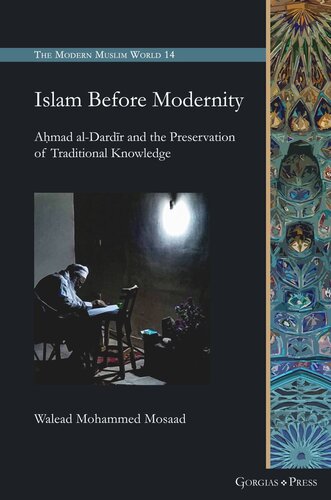

Most ebook files are in PDF format, so you can easily read them using various software such as Foxit Reader or directly on the Google Chrome browser.
Some ebook files are released by publishers in other formats such as .awz, .mobi, .epub, .fb2, etc. You may need to install specific software to read these formats on mobile/PC, such as Calibre.
Please read the tutorial at this link: https://ebookbell.com/faq
We offer FREE conversion to the popular formats you request; however, this may take some time. Therefore, right after payment, please email us, and we will try to provide the service as quickly as possible.
For some exceptional file formats or broken links (if any), please refrain from opening any disputes. Instead, email us first, and we will try to assist within a maximum of 6 hours.
EbookBell Team

4.1
40 reviewsThis book examines the role of tradition and discursive knowledge transmission on the formation of the ‘ulamā’, the learned scholarly class in Islam, and their approach to the articulation of the Islamic disciplines. The basis of this examination is the twelfth/eighteenth century scholar, Aḥmad ibn Muḥammad al-Dardīr, an Egyptian Azharī who wrote highly influential treatises in the disciplines of creedal theology, Mālikī jurisprudence, and taṣawwuf (Sufism). He also occupied a prominent role in the urban life of Cairo, and is accredited with several incidents of intercession with the rulers on behalf of the Cairo populace. This book argues that a useful framework for evaluating the intellectual contributions of post-classical scholars such as al-Dardīr involves the concept of an Islamic discursive tradition, where al-Dardīr’s specific contributions were aimed towards preserving, upholding, and maintaining the Islamic tradition, including the intellectual “sub-traditions” that came to define it.